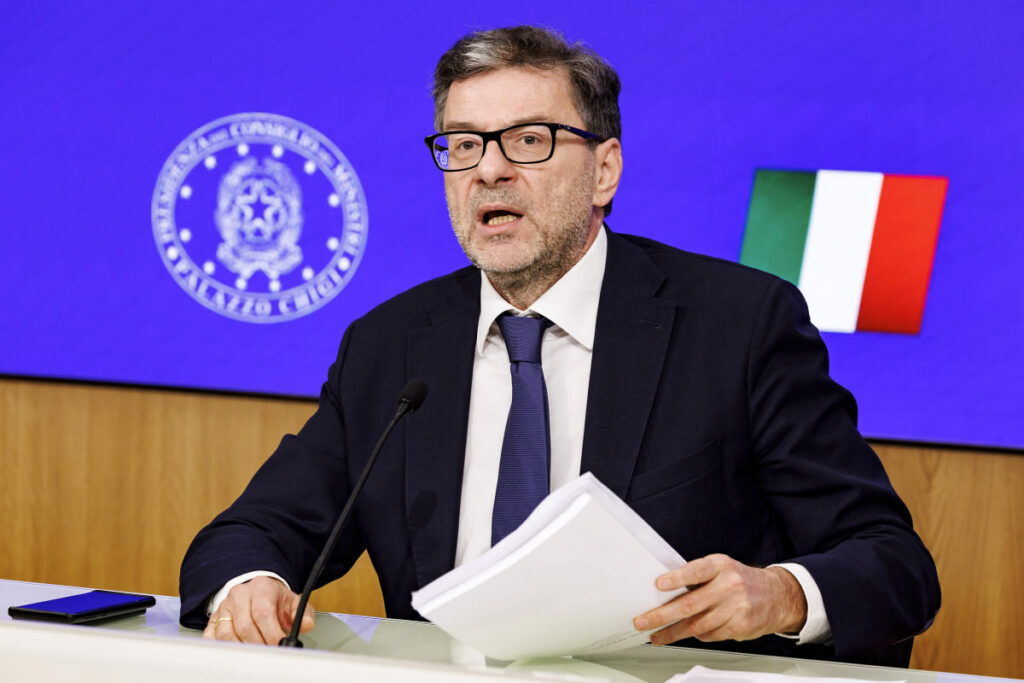Italy’s far-right government, led by Prime Minister Giorgia Meloni, has approved a significant budget for 2025, amounting to approximately 30 billion euros ($33 billion). This budget includes a strategy to generate revenue through a new financial levy aimed at Italian banks and insurance companies, expected to yield around 3.5 billion euros. The government’s rationale is rooted in its commitment to enhancing public services, particularly for the struggling health sector, and supporting vulnerable citizens. Meloni reiterated her commitment to not impose new taxes on the general public, emphasizing that the funding strategy would focus on contributions from financial institutions rather than ordinary citizens.
The new budget plan, discussed in a cabinet meeting, is strategically timed to meet the European Union’s submission requirements. Although the government has achieved consensus among ministers, the budget still requires parliamentary approval, with expectations for a final vote by the year’s end. The urgency surrounding this budget arises from the need to demonstrate compliance with EU mandates regarding deficit reduction, an area under close scrutiny amid Italy’s historical challenges of maintaining fiscal discipline. Key Italian officials, particularly Economy and Finance Minister Giancarlo Giorgetti, have been navigating the delicate balance between adhering to EU expectations and fulfilling the high-cost promises made during the electoral campaign.
The planned financial levy on banks and insurers is a contentious element of the budget. Giorgetti referred to it as a “sacrifice” for the financial sector, framed in response to public sentiment regarding banks profiting from rising interest rates. Although specifics of the levy have not been thoroughly disclosed, reports suggest it might involve eliminating tax deductions for certain bank assets and increasing taxes on stock options for bank executives. This initiative marks a shift from a previous attempt to impose a 40% windfall tax, which failed due to heavy repercussions in the banking sector. This time, Vice-Premier Antonio Tajani has reassured stakeholders that the new measure will not create panic in the markets.
In addition to the banking levy, the budget also includes an imperative “spending review,” which asks various ministries to propose reductions in their budgets. This measure aims to streamline government expenditure and amplify the funding available for public services. Notably, the 2025 budget introduces permanent cuts to income tax and social contributions for middle- and low-income earners, aligning with Meloni’s electoral promise to support these demographics. This tax strategy reflects the government’s positioning to alleviate the financial burden on lower-income households while redirecting resources towards essential public services.
However, to accommodate these budgetary enhancements, Italy anticipates an increase in its deficit, rising from an estimated 2.9% to 3.3% of its gross domestic product. This upward adjustment places Italy under further scrutiny from EU authorities, particularly as the country grapples with a historical pattern of high public debt, currently approaching 3 trillion euros. The government’s approach signals an ongoing challenge in aligning ambitious social policies with financial stability, particularly under the watchful eye of Brussels.
The subsequent steps for the government involve a concerted push to assure both Italian citizens and international markets that the budgetary measures will not compromise Italy’s long-term fiscal health. Continuous dialogue with the European Union will be essential to mitigate concerns about Italy’s compliance with EU budgetary frameworks. By prioritizing public service enhancements and tax reductions for lower incomes, while levying contributions from banks, the government hopes to strike a balance between fulfilling electoral promises and maintaining fiscal responsibility. How effectively the Italian parliament will embrace and refine this budget proposal remains a pivotal point for the government moving forward.

